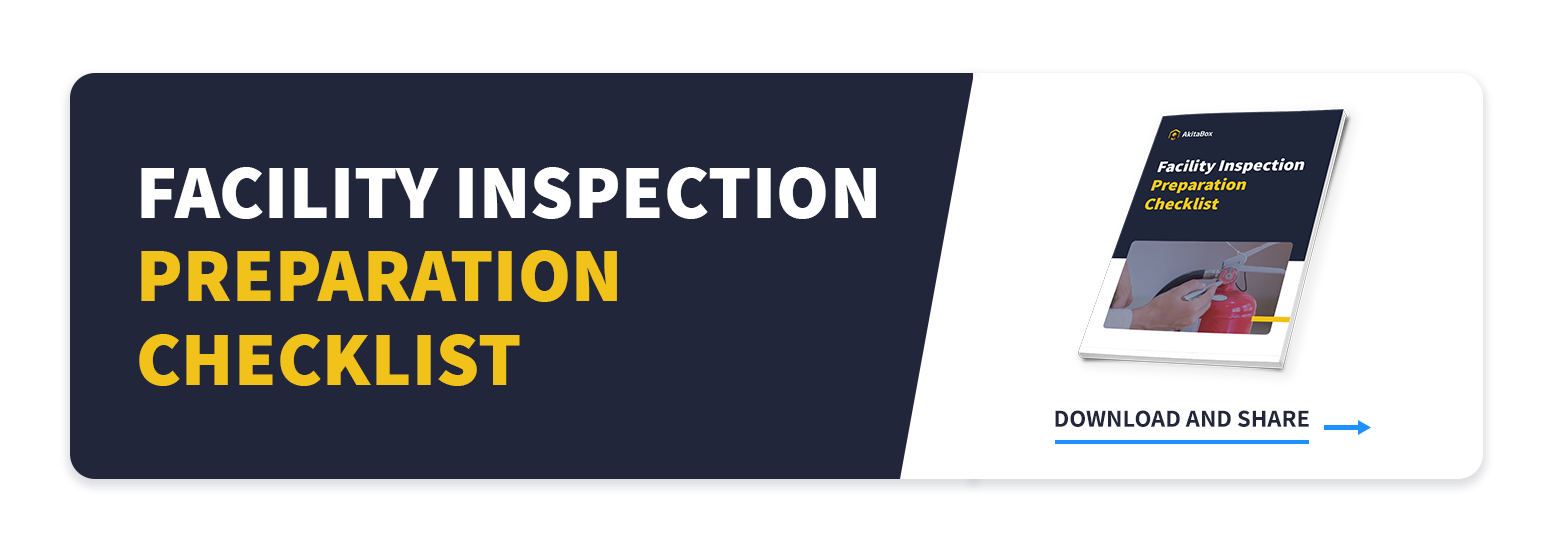Over the years, we’ve learned a lot about how to build safe and secure structures. That’s why codes are important. They keep people safe and ensure that industry professionals are following best practices.
At first glance, building codes can seem complex and intimidating, but they don’t need to be so complicated. To help you prepare yourself for an inspection, we’ve rounded up the most frequently asked questions about building codes.
Building Codes and Inspections: Your Questions, Answered
Why are building codes important?
Building codes protect two things in a building. First, building codes protect people by reducing cases of injury and death. Second, building codes protect assets by reducing property and financial loss. Your organization is responsible for understanding and applying building code requirements to attain proper approval from building code officials.
What are some examples of building codes?
A building must comply with a variety of codes, a few of which include:
|
|
Who uses building codes?
Building codes are utilized by facility managers, building engineers, construction workers, architects, interior designers, regulators and safety inspectors. Building codes also may be useful to subcontractors, insurance companies, product manufacturers and tenants of a building.
Who develops and enforces building codes?
The International Code Council (ICC) develops codes in collaboration with the Federal Emergency Management Agency (FEMA) and other federal, state, local and private authorities. Codes are adopted and enforced by state and local jurisdictions. Rather than create their own codes, many states and local jurisdictions adopt building codes maintained by the International Code Council and amend them if needed. Local building officials review design plans, inspect construction work and issue building and occupancy permits.
What is a building code violation?
Implementing building codes correctly is important when executing construction projects. Failure to abide by building codes may result in a notice of violation, a hefty fine and, eventually, closure of a building.
Because of the negative consequences surrounding building code violations, issues with codes should be addressed as soon as possible. Fixing violations can be as simple as contacting the correct repair person, consulting a building official for help or completing the repair in time for a follow-up inspection.
What’s the difference between federal, state and local building codes?
Building codes are dependent upon the jurisdiction in which you live. States and local governments can choose to adopt national model codes, a modified version of the model code or their own state-specific code. Most codes are adopted at a state level.
Depending on their form of government, cities adopt codes through their mayors, councils or committees. Once adopted, codes become part of the law within that particular state or local jurisdiction.
What are the duties of a building code official?
Code officials ensure that official records are kept regarding permit applications, permits, fees collected, inspections, notices and orders issued. Code officials also assist builders by interpreting the code’s application to a particular construction situation. He or she will explain minimum requirements, answer questions and help resolve complaints involving existing buildings and sites.
How does the code enforcement process work?
The code enforcement process begins when an application is submitted for a construction permit or remodel permit. A code official will process this application and issue a permit in accordance with the code.
The code official will also review construction plans to ensure they comply with the building code. Once construction has begun, the code official makes inspections as necessary to determine compliance. If the code official detects a deficiency, he or she will issue orders to correct the illegal or unsafe condition.
How can I make sure my building is code-compliant?
There are a variety of ways to make your building safe and code-compliant. Turn to the following resources in your jurisdiction to get your questions answered:
- Consult your local emergency management agency or permitting officials. These individuals can help you gain insight on local hazards and risks, site characteristics and proposed improvements.
- Contact your local building department. The department may be able to provide you with basic information on retrofitting a building of a certain era.
- Consult a general contractor, architect, and/or engineer. These individuals can inspect your property and provide you with specific recommendations for building improvement.
Here’s Your Free Inspection Preparation Checklist
Facility inspections are simply part of doing business, and the best way to approach them is with foresight, knowledge and preparedness. Facilities teams, safety teams and regulatory teams should conduct regular walk-throughs of their facilities to ensure that space, equipment and machinery are well-maintained and safe to use. This inspection preparation checklist is designed to help your organization ace compliance inspections every time and ensure your buildings are up-to-code.
Facility Maintenance Software for Government Buildings
Occupant safety is directly related to the state of your facilities. Let us help you maintain compliance, assess risks, reduce operating cost and improve your operational efficiency. With AkitaBox, you’ll never be alone on your path to facility management success. From data collection to implementation to continued support for your organization, we will be by your side.

